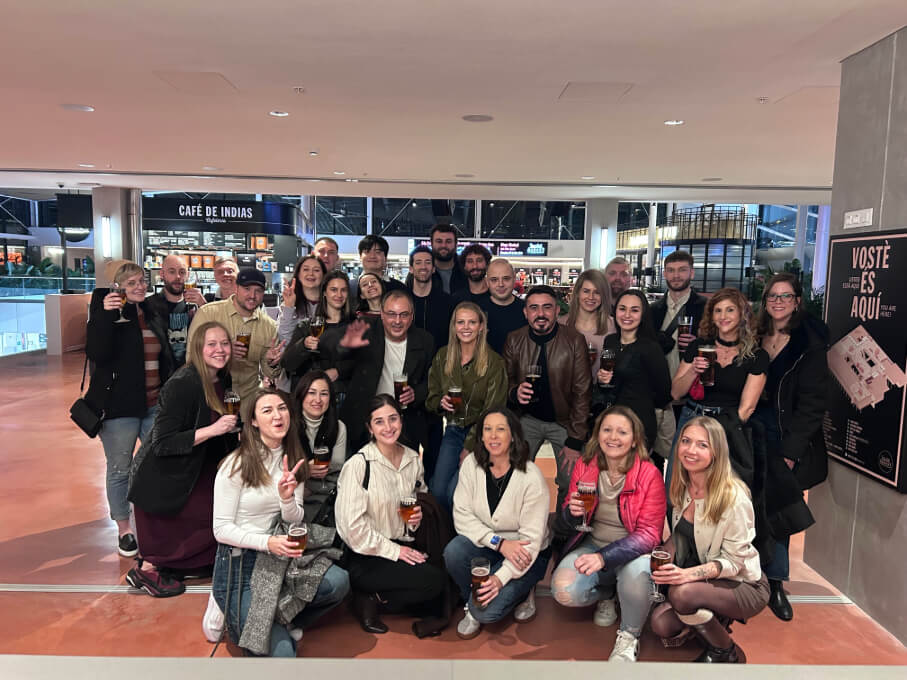Many gaming industry businesses have faltered in recent years in their efforts to expand beyond their home markets. However, Zoe Ebling, vice president of AGS Interactive, explains how a commitment to data-driven insights and close collaborations is yielding impressive international growth for the Las Vegas-based gaming industry supplier.
On the face of it, a near-universal demand for betting and gaming should provide opportunities aplenty for businesses in a growing sector that are seeking to internationalise their revenue streams.
However, in practice, fulfilling such ambitions in multiple markets is fiendishly difficult.
Even for operators and providers that have an impressive track record of sustainable growth, the perennial challenge of navigating regional nuances and regulatory differences ensures success abroad can never be taken for granted.
Nowhere has this been more apparent than in the US, where some brands have admitted defeat in their efforts to gain a foothold.
Last year alone, five sports betting platforms that had been active in multiple states scaled back their US operations or simply exited altogether, usually citing a need to focus on their ‘core business’. Major players, as well as smaller, independent enterprises, have been among those to make such a move.
Meanwhile, in recent years, tightening restrictions in multiple European countries and destinations such as Australia and Italy have led to numerous companies sunsetting operations in sports betting, igaming and land-based gaming – even though regulatory landscapes are rarely set in stone.
Against this backdrop, the pace and scale of international expansion reported by Las Vegas-headquartered gaming industry supplier AGS is unusually impressive.
International expansion
The company registered growth of 45% across Europe in 2024 as it accelerated its drive to become a truly integrated global business.
However, utilising its US-led expertise and product philosophy to scale beyond its homeland while preserving brand identity has required forensic levels of planning and a deep understanding of new markets.
“Ideally, we target new markets where we can benefit from a first-mover advantage,” says Zoe Ebling, vice president of AGS Interactive.
“A brand-new market where everyone is starting from the same place offers the best opportunity. But often, what we see are grey markets becoming regulated, or already-established markets that we’re not currently in. Those can be trickier.
“If you weren’t active in the grey market previously, players may not be familiar with your game types. So, in an ideal world, we’d prioritise a brand-new, clean slate.
“Beyond that, we also consider market maturity, player preferences, and how well our product portfolio aligns – and importantly, we look at where our key partners are.”
Partnership growth
Ebling explains that if a major operator is showing a keen interest in a new market, AGS will “strongly consider that market from a partnership growth perspective”.
In terms of such collaborations, AGS is committed to creating a tailored plan in each instance, ensuring the most relevant and impactful offerings from their portfolio can be mapped directly onto an operator’s growth trajectory.
“Here’s where AGS shines: we make a real effort to understand each operator’s business, their goals, and how our products can support them,” Ebling says.
“We also work together to define success metrics and track performance. That consultative, collaborative approach has driven a lot of our success.”
AGS is primed for further growth. At the end of June, private equity firm Brightstar Capital Partners announced the closing of its acquisition of AGS in a $1.1bn deal while, over the past three years, AGS’s interactive division has expanded by 150%. Ebling puts this down to AGS taking the time “to understand our partners and build strategic, data-driven plans together”.
She adds: “If a partner tells us they want to target a specific player segment, we come back with data and say, ‘here’s what games will perform -and why.’ That’s real value.”
Data-driven modelling
Data-driven modelling reveals that while AGS can tailor volatility, RTPs, hit frequencies, and game configurations to suit different markets, the fundamental elements of a successful game remain effective across borders.
“From a maths perspective, strong game mechanics tend to hold up across different markets,” Ebling adds. “In Europe, we’ve seen success appealing to incremental player segments who are drawn to American-style content. In LatAm, we lean more into simplicity. Game play has to be intuitive, and device performance really matters, while load times, lag and mobile optimisation are crucial.
“Interestingly, the same product that appeals to a niche segment in Europe might be a core performer in an emerging LatAm market. So, we maintain a broad portfolio of slots, non-reel games and tables, but stay true to our roots by leveraging strong, proven maths models. That’s what drives performance.”
Smart localisation
That said, there are clear trends in customer preference, depending on the destination. Ebling gives the example of fishing-themed games and leprechaun-style titles, which are particularly popular in Europe, and makes the point that players are more likely to try out a game if it visually resembles other big-name titles in their region.
“That’s why when we have strong game maths, we often create different front-end visuals to fit local tastes,” she adds. “It’s not always about building something completely new – it’s about smart localisation around a solid core.”
While some game adaptations are by choice, some are enforced. In fact, Ebling highlights game specification alterations as the biggest regulatory hurdle when launching in a new region.
For example, some markets do not allow the word ‘free’, while others require responsible gaming indicators like session timers. Such changes may seem innocuous, but they can often require resource-heavy updates within the user interface.
“We’ve worked hard to make our games flexible so that, as we enter new markets, we can make small but crucial changes quickly,” she says. “From a development perspective, it’s more efficient to have a standardised framework that can be tweaked as needed, rather than building bespoke versions for every region.”

US potential
Whilst its international ambitions are clear, AGS, which is renowned for its Vegas-style slots and cabinets, remains focused on maximising untapped opportunities in its home market, the US.
“A new US state opening would be huge for us,” Ebling adds. “That’s where the most exciting near-term potential lies.
“Beyond that, we’re watching Brazil and other emerging Latin American markets closely – especially where we have synergy with our land-based business. We’re also looking at deeper expansion into European markets. But make no mistake: the big opportunity is still in US online gaming expansion.”
With growth at home as well as abroad on the agenda, the challenge of maintaining AGS’s brand identity while adapting to different local tastes and cultures requires a philosophical approach. Indeed, Ebling explains that while some suppliers build unique games for every market, AGS takes a determined approach: to build great games and then leverage them in various markets.
Methodical and collaborative
Supported by data-driven insights, AGS believes its methodical approach to market expansion through close collaboration with operators will continue to deliver games that resonate with players – wherever they are.
“If you need to create entirely custom content for every jurisdiction, that might suggest your core product isn’t strong enough to begin with,” she says.
“At AGS, we have invested heavily over decades to assemble a top-tier team of game designers, both on the land-based and online sides. Land-based is arguably the most competitive environment in gaming as getting a game onto a casino floor and keeping it there is the ultimate test.
“Our online success is rooted in that legacy. We’re not constantly reinventing; we’re refining, and because our products are fundamentally solid, they carry across borders without losing that core AGS identity.”

Zoe Ebling, vice president of AGS Interactive
